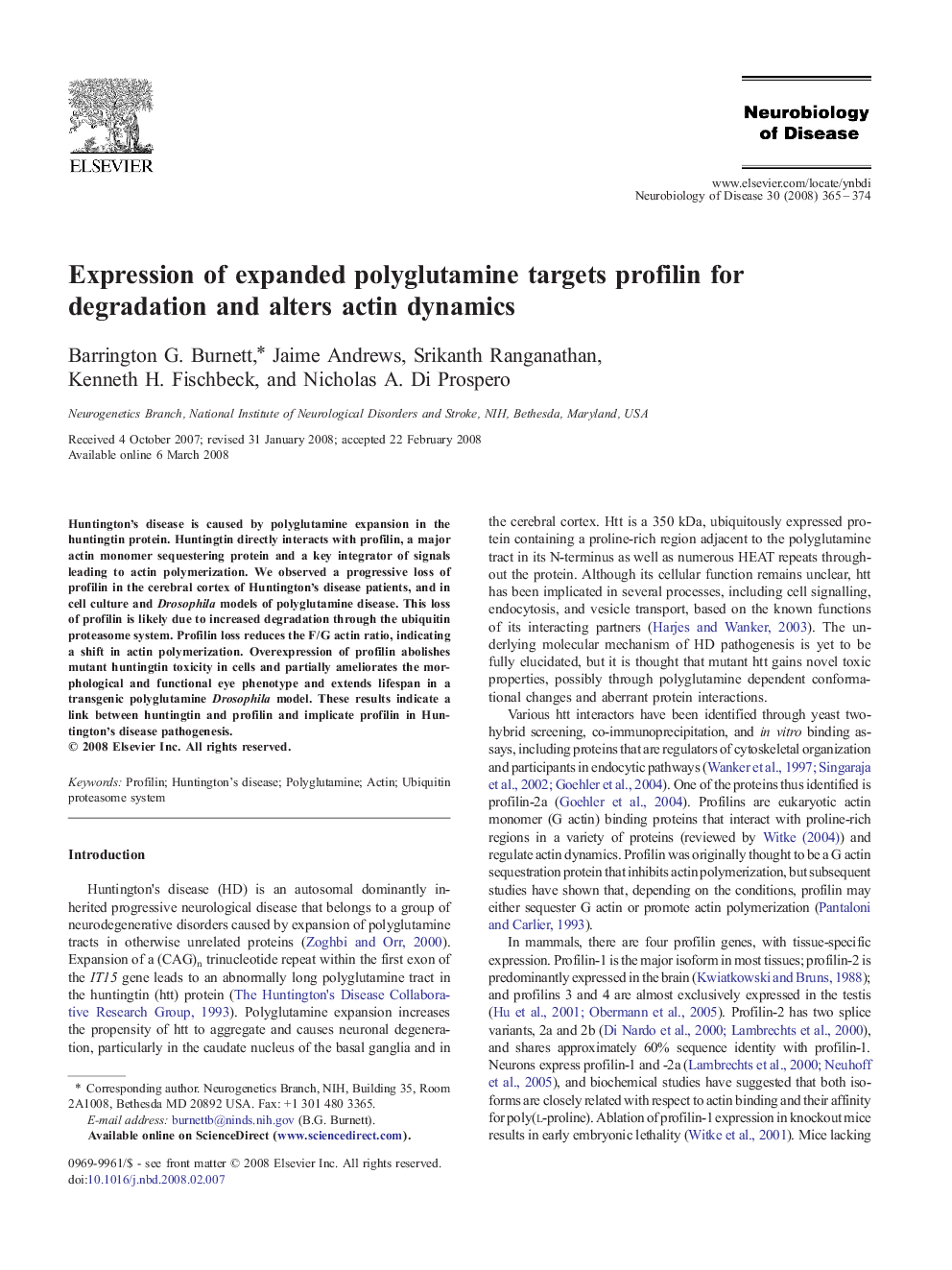| Article ID | Journal | Published Year | Pages | File Type |
|---|---|---|---|---|
| 3070066 | Neurobiology of Disease | 2008 | 10 Pages |
Huntington's disease is caused by polyglutamine expansion in the huntingtin protein. Huntingtin directly interacts with profilin, a major actin monomer sequestering protein and a key integrator of signals leading to actin polymerization. We observed a progressive loss of profilin in the cerebral cortex of Huntington's disease patients, and in cell culture and Drosophila models of polyglutamine disease. This loss of profilin is likely due to increased degradation through the ubiquitin proteasome system. Profilin loss reduces the F/G actin ratio, indicating a shift in actin polymerization. Overexpression of profilin abolishes mutant huntingtin toxicity in cells and partially ameliorates the morphological and functional eye phenotype and extends lifespan in a transgenic polyglutamine Drosophila model. These results indicate a link between huntingtin and profilin and implicate profilin in Huntington's disease pathogenesis.
